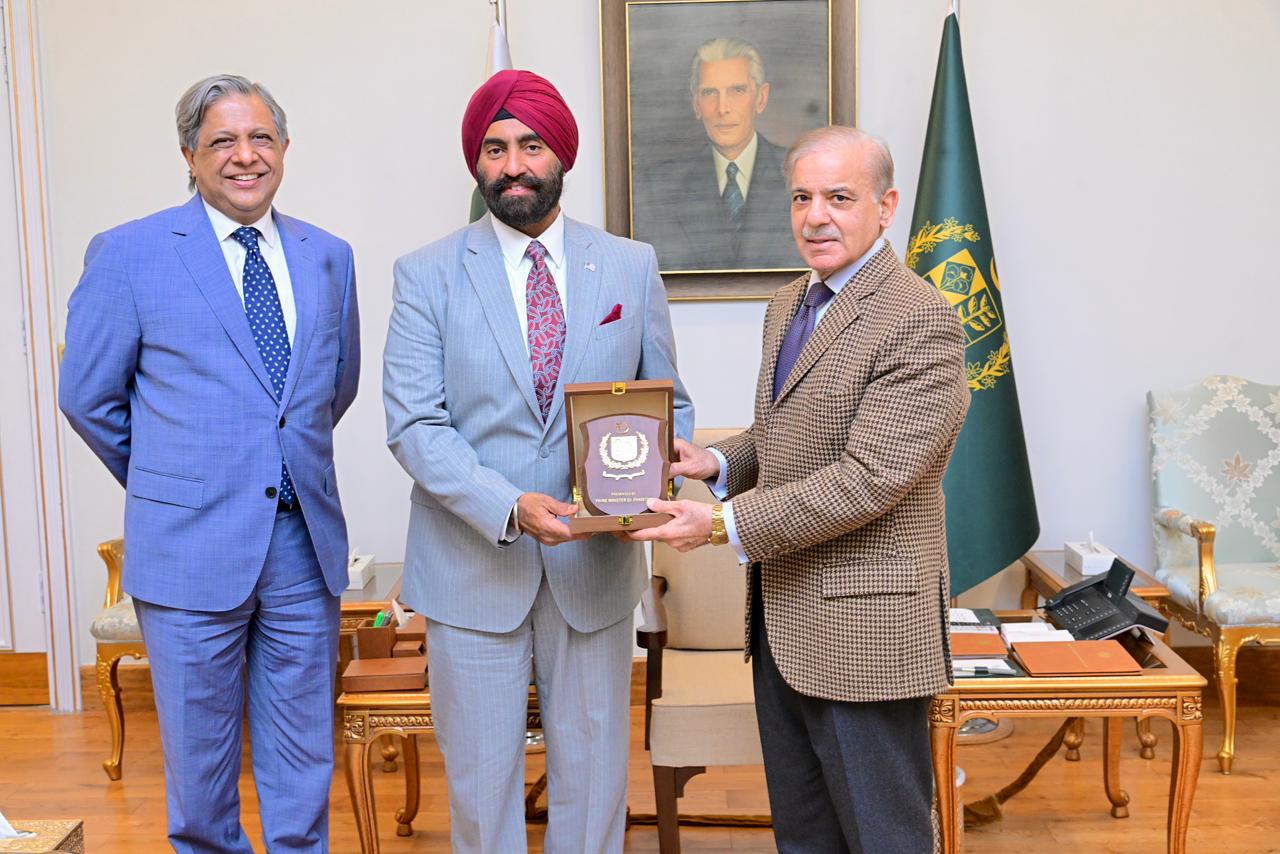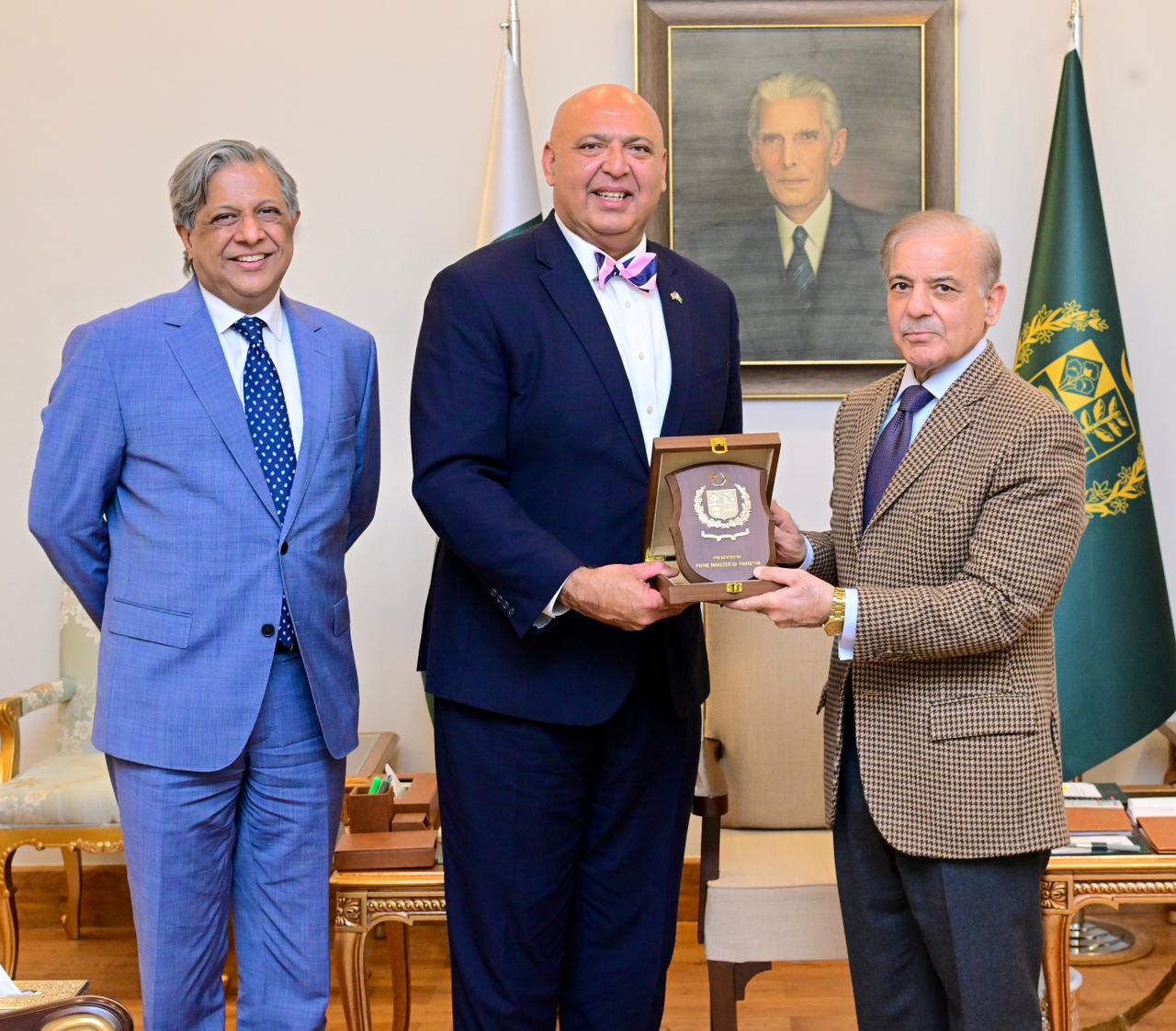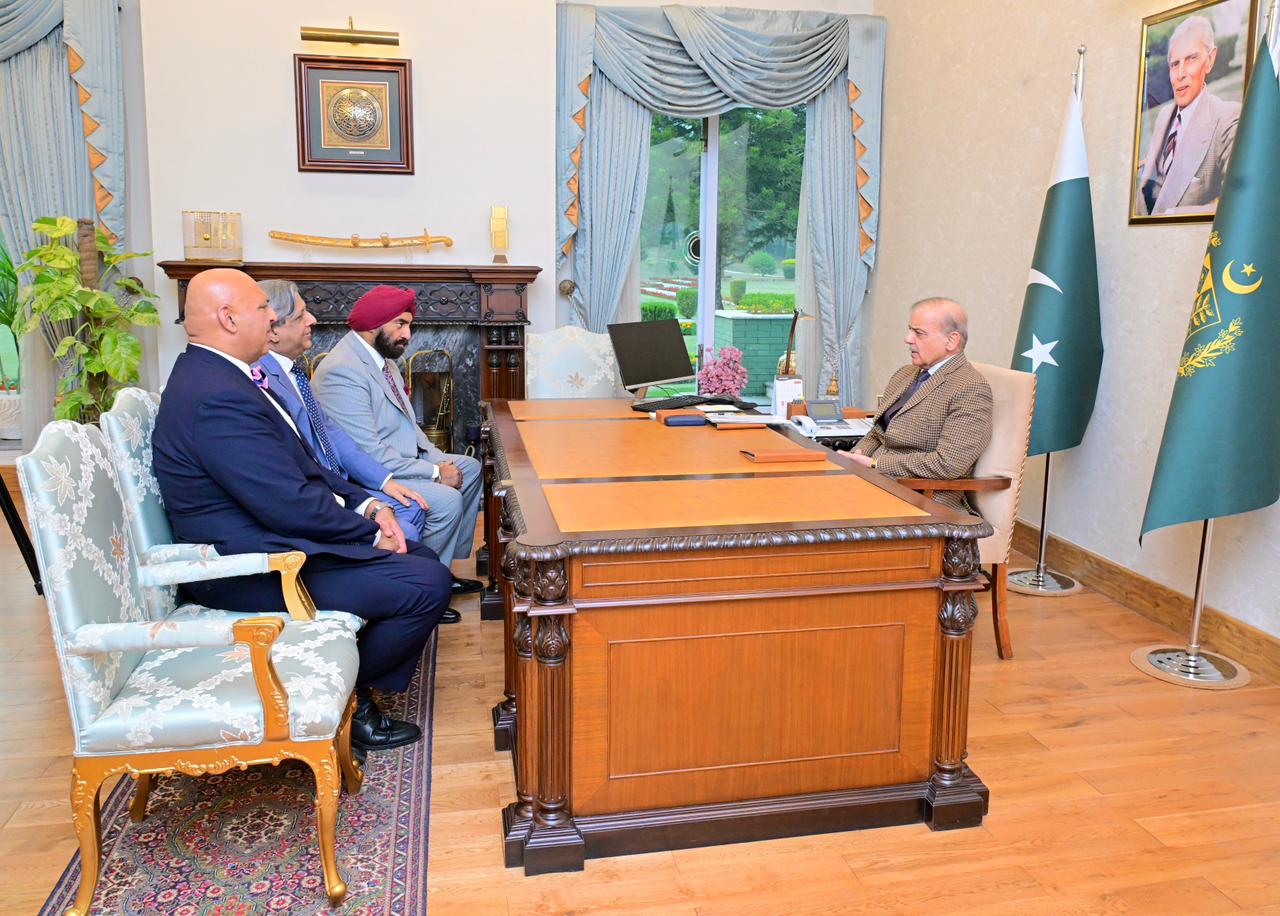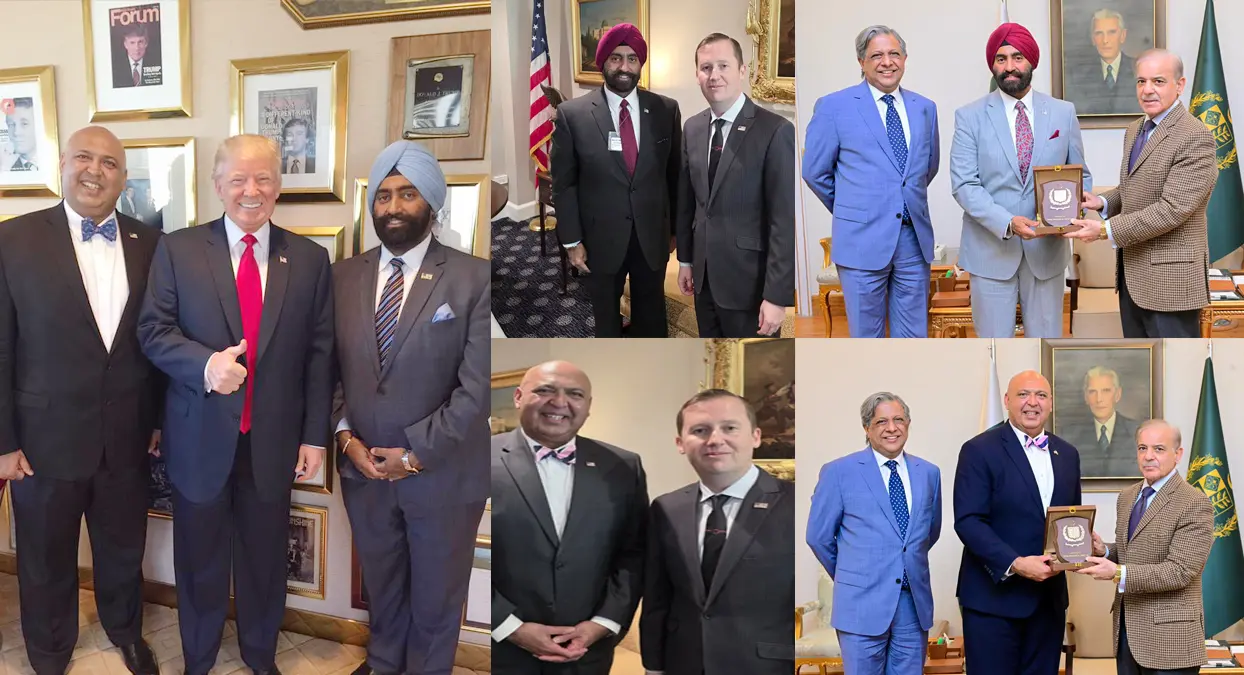In a week that captured the attention of diplomats and diaspora communities alike, Dr. Jasdip Singh Jesse and Dr. Sajid Tarar undertook one of the most unusual dual visits in recent memory. They walked out of the White House in Washington and stepped days later into the Prime Minister’s House in Islamabad.
Their journey, bridging two capitals that seldom speak to each other, raises a compelling question. In a region where governments remain frozen in mistrust, can diaspora diplomacy open the doors that official channels cannot?
Two American Voices Crossing Two Political Worlds
At the White House, Dr. Jesse, Chairman of Sikhs of America, and Dr. Sajid Tarar, Founder of Muslims for Trump and Chairman of Muslims of America, met with Sergio Gor, the newly appointed U.S. Ambassador to India and a trusted confidant of President Donald J. Trump.
Their discussion centered on Sikh border issues, community diplomacy, and the growing responsibility of diaspora leaders in stabilizing India–Pakistan relations.
Four days later, the pair sat opposite Prime Minister Shehbaz Sharif in Islamabad. They attended not as representatives of governments, but as respected diaspora leaders trusted by communities on both sides of the border.
“A Sikh and a Muslim traveling together to two capitals — this itself is a message,” Dr. Tarar noted.
“We carry no agenda except peace, prosperity, and dignity.”
This unusual itinerary — Washington to Islamabad — is the kind of bridgework that diasporas have long attempted. However, seldom does it occur with such access, warmth, or impact.

Kartarpur: Faith, Floods, and a New Economic Vision
Monsoon floods recently swelled through the Kartarpur Corridor, one of Sikhism’s holiest sites. Within hours, Pakistan deployed pumps, staff, and emergency teams to restore access for pilgrims.
Dr. Jesse and Dr. Tarar traveled to Kartarpur to personally thank those involved. They also presented an idea that could redefine Sikh engagement with Pakistan’s heritage landscape.

Their proposal: an Investment-Free Economic Zone around Kartarpur and Nankana Sahib.
The vision would allow Sikhs from the United States, Canada, the United Kingdom, and beyond to build hotels, housing, dharamsalas, and small businesses. This would reconnect them with their heritage while stimulating local economic growth.
“I saw workers clearing floodwater overnight so pilgrims wouldn’t suffer,” Dr. Jesse said.
“That respect for faith is where peace truly begins.”
Pakistani officials responded with unusual openness. They even explored an “Adopt a Gurdwara” policy. This policy would enable Sikh organizations abroad to help restore and maintain sacred sites while the state guarantees security.

The White House: Where the Journey Began
At the White House, the discussions with Ambassador Gor centered on shared responsibilities. The U.S., India, and the multi-faith diaspora, which bridges both, were key points of discussion.
Dr. Tarar, long recognized as a national voice among American Muslims and conservatives, emphasized community-based diplomacy and economic cooperation.
Dr. Jesse highlighted Sikh issues, humanitarian concerns, and the broader need for peace-driven engagement.
“President Trump has always valued peace through strength and dialogue,” Dr. Jesse said.
“Ambassador Gor understands how people-to-people peace can strengthen regional stability. Diaspora communities can create that space.”
In Washington, their message was clear: If political cycles create tension, community relationships must provide continuity.
Reframing India–Pakistan Relations Through People, Not Power
For decades, India–Pakistan diplomacy has been trapped in a zero-sum approach.
The Jesse–Tarar partnership rejects this framework entirely.
Their philosophy:
Peace is not the result of treaties. Rather, it is the product of human connection, shared heritage, and economic interdependence.
“Whenever Punjab enters the conversation, conflict steps back and humanity steps forward,” Dr. Jesse reflected.
“When Punjabis meet across borders, we remember how close we really are.”
This approach positions diaspora communities — particularly Sikh and Muslim Americans — not as bystanders. Instead, they are catalysts capable of reducing the emotional temperature that paralyzes official diplomacy.
The Prime Minister’s Message: Pakistan Opens Its Doors
In an official message issued by the Prime Minister’s Office, Prime Minister Shehbaz Sharif reaffirmed Pakistan’s commitment. He spoke of safeguarding Sikh religious heritage and supporting Sikh pilgrims worldwide.
The statement underscored Pakistan’s pride in hosting some of Sikhism’s most sacred sites and welcomed the diaspora’s growing engagement.
“Pakistan takes pride in being the custodian of sacred Sikh heritage,” Prime Minister Sharif said.
“For generations, Sikhs from across the world have visited these holy sites to honor their faith. Pakistan remains committed to welcoming them with dignity, ensuring their comfort, and strengthening facilities at all religious locations.
We are developing a comprehensive strategy to preserve Sikh heritage and improve services for pilgrims. Also, we aim to support the welfare of Sikh communities in Pakistan. Our overseas communities — including Sikhs and Pakistanis abroad — play a vital role in advancing Pakistan’s progress, prosperity, and global image.”
The alignment between diaspora initiatives and Pakistan’s official message created a rare moment. There was a shared purpose across religious, political, and geographical lines.
A New Model of Peacebuilding
Dr. Tarar believes that faith leaders are uniquely positioned to soften political divides:
“When faith leaders work together, politics softens. When communities work together, borders soften.”
The Jesse–Tarar partnership shows how community networks, businesses, religious institutions, and diaspora organizations can create a parallel architecture of trust.
This model — diplomacy rooted not in power, but in presence, respect, and moral authority — offers a new template for India–Pakistan engagement.
Toward a People’s Peace
From the polished floors of the White House to the marble corridors of Pakistan’s Prime Minister’s House, Dr. Jesse and Dr. Tarar carried a consistent message:
Dialogue | Development | Dignity
Their journey demonstrated a truth that official diplomacy often forgets:
Peace does not only belong to governments. Sometimes it begins with people — a Sikh and a Muslim — walking into two rival capitals with open hands, shared faith, and the courage to imagine a different future.
If this spirit endures, the bridge between India and Pakistan may not be built by states. Instead, it may be built by the diaspora communities who call both nations home.
